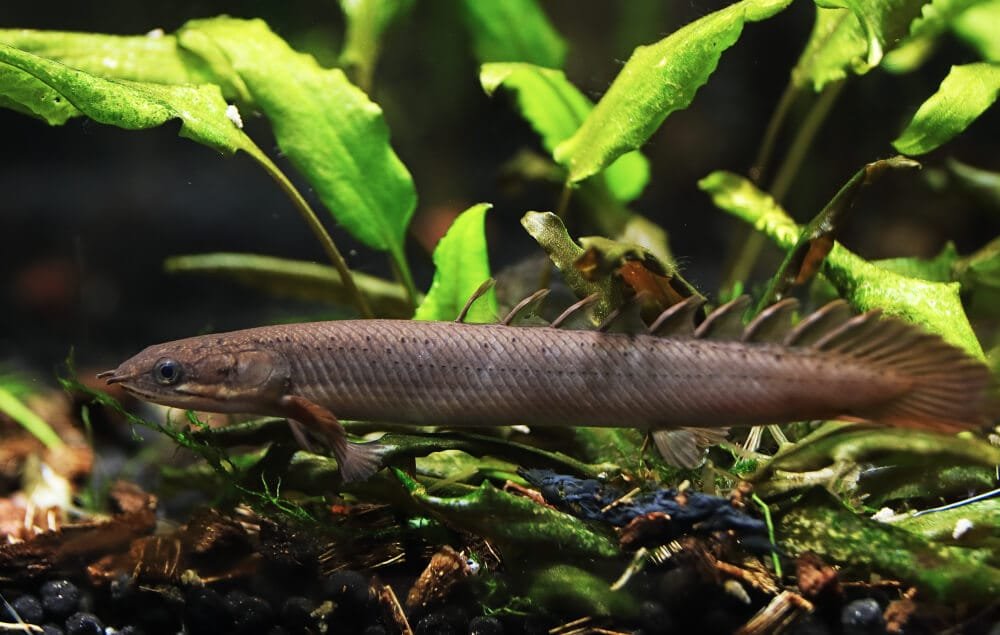Fish, like any other living creatures, require a balanced and nutritious diet to thrive. However, just like humans, they can also experience nutritional deficiencies that can hinder their health and well-being. In this article, we will explore the common signs and symptoms that may indicate a nutritional deficiency in fish. Whether you are a new fish owner or a seasoned hobbyist, understanding these signs is crucial in ensuring the optimal care and health of your underwater friends. So, let’s dive into the world of fish nutrition and discover how to spot the signs of nutritional deficiencies in fish.
Introduction
When it comes to keeping fish as pets, ensuring their nutritional needs are met is crucial for their overall health and well-being. Just like humans, fish can also suffer from nutritional deficiencies if they are not provided with a balanced and varied diet. In this article, we will explore the signs of nutritional deficiencies in fish, focusing on both general signs as well as specific deficiencies in protein, vitamins, minerals, fatty acids, and amino acids. By understanding and recognizing these signs, you can take appropriate action to address any deficiencies and ensure that your fish maintains optimal health.
General Signs
There are several general signs that can indicate a nutritional deficiency in fish. These signs can vary depending on the specific nutrient deficiency, but some common indicators include:
Decreased appetite
One of the first signs of a nutritional deficiency in fish is a decreased appetite. If your fish suddenly shows a lack of interest in food or consistently refuses to eat, it may be a sign that it is not getting the necessary nutrients it needs.
Weight loss
Weight loss is another common general sign of nutritional deficiencies in fish. If your fish is losing weight despite being provided with an adequate amount of food, it may be an indication that it is not absorbing or utilizing the nutrients effectively.
Reduced growth
Nutritional deficiencies can also lead to reduced growth rates in fish. If you notice that your fish is not growing at the expected rate or is significantly smaller than its counterparts, it may be a sign of inadequate nutrient intake.
Diminished energy levels
Fish with nutritional deficiencies often exhibit diminished energy levels. They may appear lethargic, inactive, or less interested in their surroundings. This lack of energy can be attributed to the body’s struggle to function properly without the necessary nutrients.
Physical Signs
In addition to the general signs mentioned above, there are several physical signs that can indicate specific nutritional deficiencies in fish. These signs are often visible to the naked eye and can provide valuable insights into the health of your fish. Some physical signs to look out for include:
Abnormal skin coloration
Nutritional deficiencies can manifest in the form of abnormal skin coloration in fish. You may observe a fading of color or changes in pigmentation. This can be a result of inadequate nutrient absorption and metabolism.
Skin lesions or ulcers
Fish with nutritional deficiencies may develop skin lesions or ulcers. These can appear as open sores, scabs, or wounds on the fish’s body. Skin lesions and ulcers are indicative of poor overall health and a compromised immune system.
Deformed or stunted body
In severe cases of nutritional deficiencies, fish may exhibit a deformed or stunted body shape. This can be observed as an irregular growth pattern, a twisted spine, or an abnormal body structure. It reflects a failure in proper development due to nutrient deficiencies.
Dull or rough scales
Healthy fish typically have shiny and smooth scales. However, nutritional deficiencies can lead to dull or rough scales. If your fish appears to have lackluster scales that are not as vibrant as they should be, it may be a sign of inadequate nutrition.
Fragile fins
Fins that are weak, frayed, or prone to tearing can indicate a nutritional deficiency in fish. Deficiencies can impact the strength and resilience of fins, making them more susceptible to damage. If your fish’s fins appear fragile or damaged, it may be a cause for concern.
Behavioral Signs
In addition to the general and physical signs, nutritional deficiencies in fish can also manifest in their behavior. Fish may display various behavioral changes when they are not receiving the necessary nutrients. Keep an eye out for the following behavioral signs:
Lethargy
Fish that are not getting the nutrients they need may become lethargic or inactive. They may spend more time resting at the bottom of the tank or exhibit reduced swimming activity. Lethargy can be a sign that the fish’s body is not functioning optimally.
Erratic swimming
Nutritional deficiencies can also cause fish to exhibit erratic swimming patterns. They may swim in a jerky or uncoordinated manner, displaying a lack of control over their movements. Erratic swimming can indicate muscle weakness or neurological issues resulting from nutrient imbalances.
Loss of coordination
If you notice your fish struggling to maintain balance or coordinate movements, it may be a sign of a nutritional deficiency. Poor coordination can manifest as difficulty swimming in a straight line or staying upright in the water.
Increased aggression
In some cases, nutritional deficiencies can trigger behavioral changes such as increased aggression. Fish may become more territorial, prone to attacking tankmates, or displaying aggressive behaviors that are unusual for their species. This change in behavior can be a result of the fish’s heightened stress levels due to inadequate nutrition.
Reduced ability to evade predators
When fish are not receiving the necessary nutrients, their ability to evade predators can be compromised. They may become slower or less agile, making them easy targets for predators. If you notice that your fish is frequently falling victim to attacks, it could be a sign of nutritional deficiencies affecting their ability to defend themselves.
Specific Nutritional Deficiencies
In addition to the general signs and symptoms of nutritional deficiencies, there are specific deficiencies that fish may experience. These deficiencies can affect different aspects of a fish’s health and should be addressed accordingly. Let’s explore some of the specific nutritional deficiencies that can arise in fish:
Protein Deficiency
Protein is an essential nutrient for fish, and a deficiency in this macronutrient can have significant impacts on their health. Some signs of protein deficiency in fish include:
Slow growth
Protein is crucial for growth and development in fish. A deficiency in protein can lead to stunted growth and an overall slower growth rate. If your fish is not reaching its expected size milestones, protein deficiency might be a contributing factor.
Muscle wasting
Protein deficiencies can lead to muscle wasting in fish. The lack of protein prevents proper muscle development, resulting in weakened muscle tone and a lean appearance. If you notice your fish’s muscle mass diminishing or becoming visibly weak, a protein deficiency should be considered.
Reduced reproductive capacity
Reproduction in fish relies on the availability of essential nutrients, including protein. Fish with protein deficiencies may experience difficulties in their reproductive processes, leading to reduced fertility and breeding success. If your fish is struggling to reproduce despite being of reproductive age, protein deficiency could be a factor.
Weakened immune system
Protein plays a crucial role in building a robust immune system in fish. A deficiency in protein can compromise the fish’s immune response, making them more susceptible to infections, illnesses, and diseases. If your fish seems to be frequently falling ill or exhibits a weakened immune system, protein deficiency should be addressed.
Vitamin Deficiencies
Vitamins are essential micronutrients for fish, and deficiencies can have various impacts on their health. Some specific vitamin deficiencies to be aware of include:
Vitamin C deficiency
Vitamin C is crucial for maintaining healthy tissues and preventing diseases in fish. A deficiency in vitamin C can lead to poor wound healing, bleeding gums, and even scoliosis in severe cases. If your fish exhibits any of these symptoms, it may be indicative of a vitamin C deficiency.
Vitamin D deficiency
Vitamin D is essential for calcium and phosphorus absorption, which contributes to bone health in fish. A deficiency in vitamin D can lead to deformities, softening of the bones (known as rickets), and a weakened skeletal structure. If your fish’s bones appear weak or deformed, a lack of vitamin D may be the cause.
Vitamin E deficiency
Vitamin E plays an important role in protecting cells from oxidative damage and maintaining the health of the fish’s skin and eyes. A deficiency in vitamin E can lead to skin lesions, poor wound healing, and vision problems. If your fish displays any of these symptoms, it may be a sign of vitamin E deficiency.
Vitamin K deficiency
Vitamin K is essential for proper blood clotting in fish. A deficiency in vitamin K can result in excessive bleeding, prolonged bleeding after injuries, and internal hemorrhaging. If your fish shows signs of unexplained bleeding or bruising, a lack of vitamin K may be the cause.
Mineral Deficiencies
Minerals are essential for various biological functions in fish, and deficiencies can have detrimental effects on their health. Some mineral deficiencies to be aware of include:
Calcium deficiency
Calcium is crucial for bone development and maintaining proper neurological function in fish. A deficiency in calcium can lead to weak bones, skeletal deformities, and problems with nerve signaling. If your fish exhibits signs of skeletal abnormalities or appears to have weak bones, calcium deficiency should be considered.
Phosphorus deficiency
Phosphorus is essential for energy metabolism, bone formation, and acid-base balance in fish. A deficiency in phosphorus can result in poor growth, weakened bones, and decreased overall vitality. If your fish is exhibiting signs of slow growth or appears weak, phosphorus deficiency may be a contributing factor.
Iron deficiency
Iron is essential for oxygen transport and energy production in fish. A deficiency in iron can lead to anemia, reduced oxygen-carrying capacity, and lethargy. If your fish appears weak, lacks energy, or displays pale gills, an iron deficiency may be the cause.
Magnesium deficiency
Magnesium is involved in various enzymatic reactions and plays a crucial role in muscle function and nerve signaling in fish. A deficiency in magnesium can lead to muscle weakness, twitching, and irregular swimming patterns. If your fish displays any of these symptoms, it may be indicative of a magnesium deficiency.
Potassium deficiency
Potassium is essential for maintaining fluid balance and nerve signaling in fish. A deficiency in potassium can lead to muscle weakness, decreased activity levels, and abnormalities in heart function. If your fish exhibits signs of muscle weakness or irregular heartbeats, potassium deficiency should be considered.
Conclusion
Recognizing the signs of nutritional deficiencies in fish is key to ensuring their well-being. By understanding the general signs, physical signs, and behavioral signs, as well as the specific deficiencies that can occur in protein, vitamins, minerals, fatty acids, and amino acids, you can take appropriate action to address any deficiencies and provide your fish with a balanced and nutritious diet. Regular observation and consultation with a veterinarian or aquatic specialist can help you identify and address any nutritional deficiencies, ensuring that your fish remains healthy and vibrant. Remember, a well-fed fish is a happy fish!




